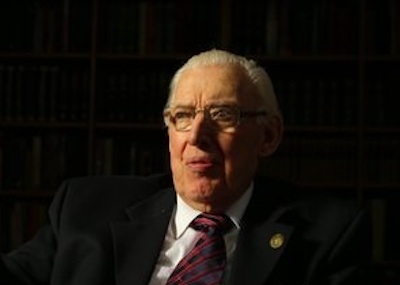
An attempt to revamp the hardline image of former DUP leader Ian Paisley has backfired after he told a BBC interviewer the 26 County state got what it deserved in the Dublin and Monaghan bombings of 1974.
Now 87, Paisley was for decades the most extreme of the unionist politicians in the North, dogmatically rejecting any involvement by Dublin in the Six County statelet and loudly threatening dire consequences for any form of ‘betrayal’ or ‘surrender’.
And speaking in a BBC interview to be broadcast on Monday night, Mr Paisley said the Dublin government effectively brought the two UVF bomb attacks, in which 33 people died, on themselves.
“Who brought that on them?” he asked. “Themselves, it was their own political leaders... at that time the attitude of the south government to Northern Ireland was ridiculous.”
The comments were made as part of a soft-focus reflective documentary in which the former DUP leader is presented as an enlightened individual who privately held far more moderate views than his public statements exhibited.
But Margaret Urwin of Justice for the Forgotten, which represents survivors and relatives of those killed in the atrocity, said they were stunned by Paisley’s remarks on the Dublin and Monaghan bombings.
“I think the real shock is that he expressed such remarks. It is very shocking for the families, especially in this the 40th anniversary year,” she said.
“We realise there has always been ambiguous relationship between unionist politicians and loyalist paramilitaries and indeed there has always been between the British government and loyalist paramilitaries. But some relatives have contacted us as well as survivors and they are pretty horrified by what he has said.”
ROBINSON AT ODDS
As Paisley’s new version of history was being condemned by nationalists, it was also surprisingly challenged by his successor as DUP leader, Peter Robinson.
Mr Robinson spoke of Paisley’s “failure of recollection” in regard to the ‘invasion of Clontibret’, when Robinson led a large group of loyalists into the County Monaghan village in protest against what he claimed were inadequate security measures along the border following Margaret Thatcher’s signing of the Anglo-Irish Agreement.
In the documentary, Mr Paisley said the protest, which resulted in disorder, damage and a fine for Mr Robinson, “shouldn’t have been done”.
When asked if there was a feeling within his family then that Mr Robinson was making a leadership challenge - Mr Paisley was out of the country at the time - he replied: “Everybody has a right to decide for themselves what their answer to that is.
“I think he (Mr Robinson) thought that there was going to be a tremendous uprising as a result of all that, and that didn’t happen.”
But Peter Robinson said that he had actually substituted for Ian Paisley at Clontibret as Mr Paisley had to attend a funeral.
Speaking in Dublin on Friday, Mr Robinson said Mr Paisley’s account was “a failure of recollection”. He said that Mr Paisley “was the one who had agreed to go to Clontibret”.
“He had to leave to go to a funeral in the US and I stepped in as his deputy into the Clontibret arrangement,” said Mr Robinson.
![[Irish Republican News]](https://republican-news.org/graphics/title_gifs/rn.gif)
![[Irish Republican News]](https://republican-news.org/graphics/title_gifs/harp.gif)

